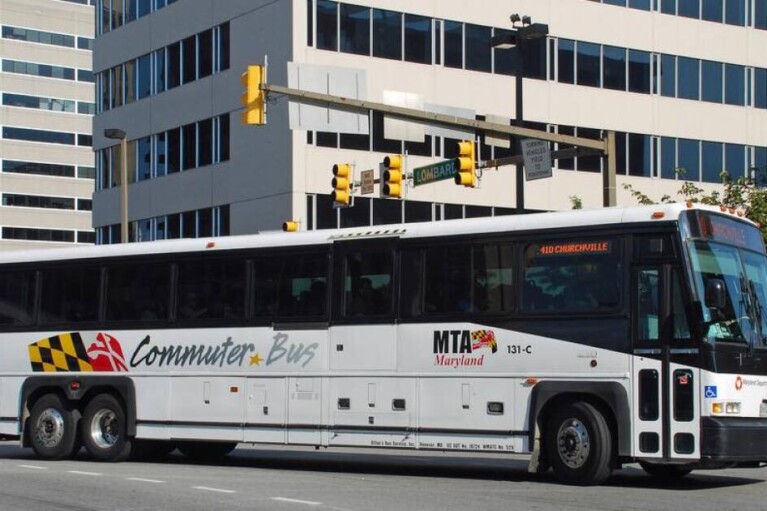
It is clear that we continue to struggle with racial discrimination, and we continue to deny how purposeful and systemic it is. It has already led to broken trust between our communities and authorities. Worse yet, it is leading to unnecessary killings and violence.
The recent incidents and events in Minnesota, Oregon and New York, among others, are speaking to the harm our policies have caused, and the needed change.
It is not different in Montgomery County. The discrimination is evident in disproportionate arrests and incarcerations, and in the courtrooms. Regarding arrests, a 2019 lawsuit was filed citing a traffic-related stop three years prior. The lawsuit complained of arrests and searches that violated constitutional rights. Unfortunately, this incident was not an aberration; it continues to happen.
The lawsuit highlighted several troubling patterns. First, it cited data showing that Montgomery County police officers issued approximately 53% of their speeding-related traffic notices to non-white motorists and 46.5% to white motorists. Similarly, the lawsuit cited disproportionate searches of African-Americans, noting that of all the searches Montgomery County Police Department officers conducted in 2016, 44% were of African-Americans, compared to 26% of Caucasian Americans.
According to the U.S. Census Bureau data, the population estimate for Montgomery County, reported on July 1, 2018, was 1,052,567, with 19.9% being African-American, 43.3% being “White alone, not Hispanic or Latino,” and 60.2% for all “White (including Hispanic or Latino).” The comparison between the numbers of traffic stops to the population breakdown is troubling on its own. Unfortunately, however, this is not where it ends.
Data for 2019 and 2018 shows that Montgomery County police also filed misdemeanors disproportionately against African-Americans: of these misdemeanors, 51.82% in 2018 and 53.79% in 2019 were against African-Americans; but only 29.48% and 36.71%, respectively, were against “White, Caucasian, Asiatic Indian, Arab (includes Hispanic/Latino).”
Consider these numbers for a moment. Over 50% of misdemeanor criminal cases are against African-Americans, when they comprise less than 20% of the population.
The data is not simply implying racism. It is showing racism.
Consider, for example, that MCPD filed more counts per misdemeanor case against African-Americans than against those in other racial groups. Of the total misdemeanor cases in 2018 and 2019 with more than three charges, 58.2% were against African-Americans, as opposed to 34.8% being against “White, Caucasian, Asiatic Indian, Arab (includes Hispanic/Latino).”
Cut a different away, consider, as another example, one allegation of theft, combined with pre-trial incarceration. When it is this one allegation – any theft of less $1,500 – approximately 8% of Black defendants are incarcerated before even going to trial, in comparison to 4% of the White defendants. To ensure that this incarceration is not due to a warrant issued for not appearing in court, this sub-cohort excludes defendants who failed to appear in court. It is even more outrageous that in some of these cases, Montgomery County has incarcerated some defendants where the charge is even less serious (theft of less than $100), for over 30 days, before trial.
One has to stop and think about this – 30 days in jail, before trial, for alleged theft of less than $100.
Again disturbingly, these patterns extend to high school students. Across all Montgomery County Public Schools, 2013-2014 data showed that African-American students constituted 22.5% of the student population but made up 43.0% of those arrested.
Some of us, in attempt to explain such numbers, suggest that African-Americans are more prone to crime. These attempts are heartbreaking. Personal accounts from court, while defending criminal defendants, expose such attempts as false and harmful.
The bases for those attempts – the excuses – also have been disproven by studies, including one done recently in Massachusetts and requested by the state’s Supreme Judicial Court Chief Justice Ralph Gants. A report of that study, and a Boston Globe article summarizing it point to patterns similar to those in Montgomery County.
One adverse result from our policing approach, and our denials, obviously is the constitutional violations – breach of our promise to each other. But it goes deeper than that. These patterns, across the board, break up families, increase poverty and illiteracy, and perpetuate these issues into our future generations. They are breaking all trust between an entire part of our community and law enforcement and endangering the safety of all of us.
Through other qualitative research, the psychological effects of such patterns are clear. Interviews of 27 African-Americans in the District of Columbia puts this in perspective:
Tiffany, Black female: “Police need to do a better job and understand that we are scared and why we are scared. We are alert for a damn reason … The argument that they fear for their life is a piss poor excuse … If I look at a cop wrong, I feel like I become his target practice. … Sometimes I wake up in the middle of the night or hear about something, and I think, oh that could have been one of my brothers. And I just start crying. It’s all I can do.”
Luke, Black male (about using Facebook): “Oh I’m convinced streaming live on Facebook has saved my life. … There is not a single time where I can sit in a car and hear a siren or see a cop light flash, that I’m not fearful. I imagine it’s like what soldiers feel when they hear anything that sounds like a bomb.”
Derek, Black male: “I get very anxious and scared when I’m by myself … One of my greatest fears is being stopped by police when I’m alone. I literally have nightmares about it.”
Lena, Black female: “It’s a sad reality to accept that no matter how you dress, how you talk, a police officer will always judge you and think you’re a threat. I don’t think we have control over if we are going to get beat or not …”
It is just as disturbing that over the years Montgomery County has done little to curb discriminatory patterns, denying its role in loss of life and the adverse effects on our communities. The traffic incident cited above occurred in 2016 and involved at least seven officers; yet the data shows that the same patterns continued through 2018 and 2019.
The observations in our courtrooms, and the analyses of the numbers point to racism and discrimination. The interviews give us a glimpse, barely the tip of an iceberg, of how such misconduct is harming our communities. It all begs the question: are we so blind and stubborn that we refuse to acknowledge our faults? Are we truly so coarse that loss of life is not enough to nudge us into action, that even long-term adverse economics are not convincing?
We are suppressing a whole part of our population – neighbors, doctors, teachers, teenagers – criminalizing them for being African-American. Along the way, we accept killings as inevitable, disrespecting and discounting life.
It is purposeful and systemic.
The targeting and profiling make it purposeful.
Our process – from the legislatures, to the police, to the police unions, to our courts, to the jails – make it a pipeline, a system. A system further supported by every denial we make along the way.
— ISSA AL-AWEEL AND DEOIN HAWKINS
Issa Al-Aweel is an attorney in Maryland, currently conducting research and litigating matters involving civil rights issues. He can be reached at [email protected]. Deion Hawkins is a professor of Communications at Emerson College. He can be reached at [email protected].




 Creative Commons Attribution
Creative Commons Attribution